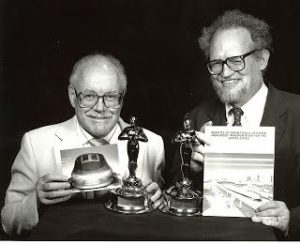Dr. James Powell

He was a senior scientist at Brookhaven National Lab (BNL) from 1956 to 1996. His experiences have led to significant advances in the design and analysis of advanced reactor systems, cryogenic and superconducting power transmission, plasma physics, mine safety, fusion reactor technology, electronuclear (accelerator) breeder systems, transmutation of nuclear wastes, space nuclear thermal propulsion, electromagnetic hyper velocity guns, hydrogen and synthetic fuels, and transportation infrastructure.
He holds patents for the Particle Bed Reactor (PBR) for nuclear rocket propulsion; the use of aluminum structures in fusion reactors; blankets employing solid lithium ceramics and alloys for tritium breeding; and, demountable superconducting magnet systems and the advanced vitrification system for high-level nuclear and toxic wastes. He and Dr. Danby are the holders of the first patent in superconducting Maglev in 1968, as well, as many recent patents on the 2nd generation advanced maglev system.
Dr. Powell holds a Bachelor of Science in Chemical Engineering from the Carnegie Institute of Technology and a Doctor of Science in Nuclear Engineering from the Massachusetts Institute of Technology.
Dr. George Maise
Dr. George Maise is a mechanical/aeronautical engineer with many years of experience in industry and in research laboratories. He holds a Ph.D. in Aerospace and Mechanical Sciences from Princeton University and B.S. (Honors) from University of California, Berkley. His major areas of expertise are fluid mechanics and heat transfer, particularly as related to air-breathing and rocket propulsion, rarefied gas dynamics, re-entry heating, nuclear reactor thermal/hydraulics, and electrostatic probes for plasma diagnostics.
During his early career, Dr. Maise worked for several aerospace companies in the areas of thermal sciences, magnetohydrodynamics, and aircraft and rocket propulsion. From 1974 to 1997 he worked as a member of Scientific Staff at Brookhaven National Laboratory (BNL). This work involved a variety of projects. Initially, Dr. Maise served in the Thermal Reactor Safety Division. In that capacity, he supervised a group of BNL scientists and outside consultants providing advice to NRC on licensing of commercial nuclear power reactors. When the administration launched the Strategic Defense Initiative (SDI), Dr. Maise transferred to work on a program to develop a nuclear-powered rocket to intercept enemy ICBMs. He supervised an experimental program to characterize the thermal- hydraulic performance of the nuclear-powered rocket. Subsequent to the SDIO program, Dr. Maise worked for the International Safeguards Projects Office. In this capacity he provided advice to the U.S. State Department on IAEA requests for technical assistance. He prepared
briefing papers for Bilateral Safeguards Meetings with various countries and with EURATOM and represented DOE at these meetings, as requested. In 1997 he resigned from BNL and has worked as a private consultant to several high-technology firms. Also, along with Dr. Powell he was a co-founder of StarTram, Inc.
